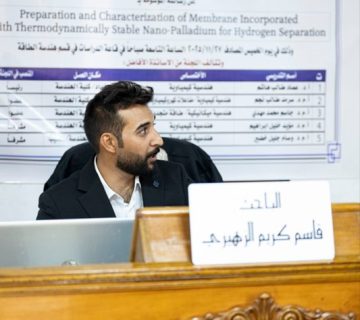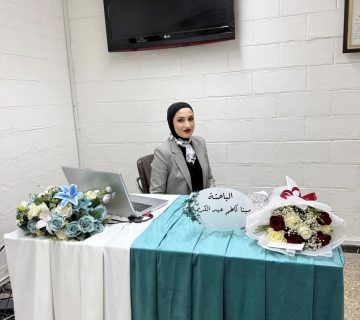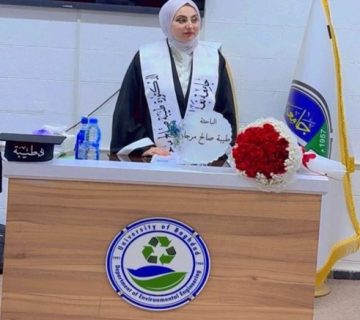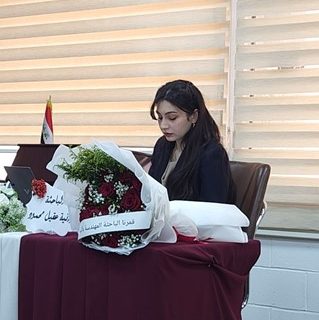The College of Engineering at the University of Baghdad held a public discussion for a master’s thesis titled “An Improved MATLAB-Simulink Models for Monocrystalline and Polycrystalline Silicon Solar Modules Considering Atmospheric Ambient Conditions”. The discussion took place on Wednesday, September 4, 2024, in Dr. Mahdi Hantoush Hall, under the supervision of Prof. Emad Talib Hashim, and was presented by Tabarak Thamer Fadel, a master’s student from the Department of Energy Engineering.
The thesis aimed to study and analyze the effects of temperature fluctuations—specifically at 25°C and 50°C—and varying levels of solar radiation (500 and 1000 W/m²) on the current, voltage, and power output of monocrystalline and polycrystalline solar modules. A four-parameter model was used, including: Photocurrent (Iph)Dark saturation current (I)Series resistance (Rs), andDiode ideality factor (A). This model helped develop a simulation code to evaluate the effects of temperature, wind, and solar radiation on the energy output of solar panels.
The thesis concluded with several key recommendations, such as analyzing the efficiency of additional photovoltaic modules and exploring advanced photovoltaic technologies likeorganic photovoltaics and dye-sensitized solar cells from the third generation. Furthermore, a thermal analysis could be performed, considering the absorbed solar radiation, wind speed, thermal properties of the modules, and the conductivity of the supporting structure, to determine the overall heat loss coefficient of the photovoltaic unit. The study emphasized the need for further research to incorporate additional factors for solar panels to operate effectively under specific times and locations.
After the public discussion and defense of the thesis byTabarak Thamer Fadel, the examination committee awarded her a master’s degree in Energy Engineering.








